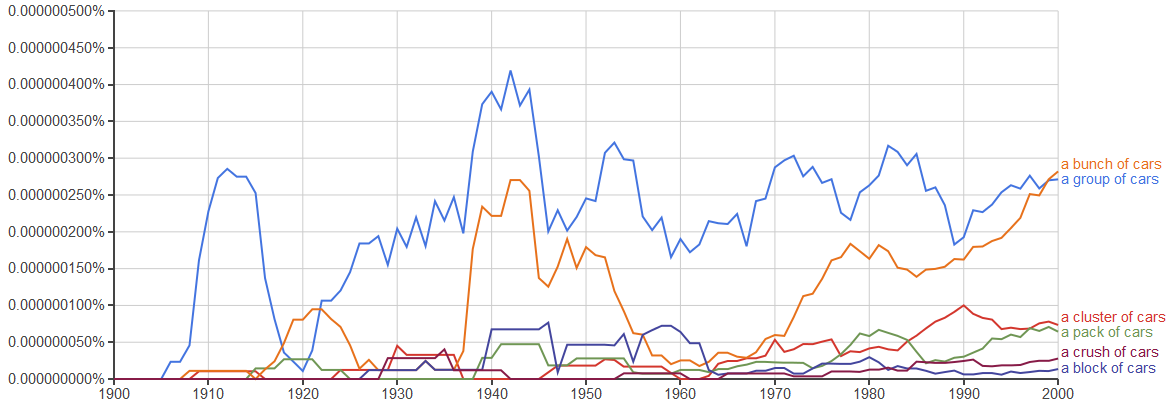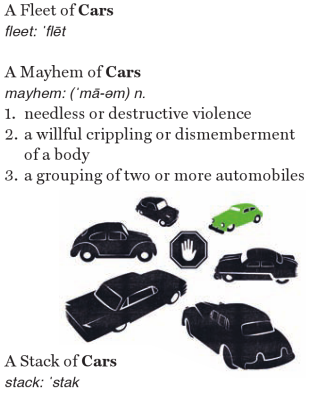A common word as a collective noun is line (as in a line of cars). With this word, you can also specifically mean the cars on your lane but it can be used for the row of cars on all lanes. Though, it might mean a production line of cars also in a business context.
Based on your example, I searched "line of cars behind" and "line of cars in front" in Google Books and there are a lot of hits. Some example usages from the results:
About this time someone noticed that a couple of huge semi trucks had become entangled in the line of cars behind us.
[Deep in Our Hearts: Nine White Women in the Freedom Movement By Joan C. Browning, Dorothy Dawson Burlage - 2002]
The drivers in the long line of cars behind them, tried very hard not to get lost on their way to the resort.
[Sarah's Ten Fingers By Isabelle Stamler - 2013]
There was a line of cars in front of him, inching slowly forward.
[Geek High By Piper Banks - 2007]
I also found a blog site which addresses the same question and tries to answer in detail. Traffic also comes to the mind of author but he explains why it cannot be a collective noun for cars as below and he also comes up with a lot of suggestions as a collective noun:
I thought perhaps “traffic” might be the appropriate collective noun. But in his book Traffic: Why We Drive the Way We Do, Tom Vanderbilt explains that the word “traffic” originally referred to trade and the movement of goods, and was a positive word. Then it came to also refer to the people who were moving goods. And as “traffic” meant people moving things to trade, it all came to mean people moving vehicles in pursuit of commerce. Which is pretty much what it means today, since the worst traffic jams occur as millions of people try to get to work. In any event, “traffic” means cars and people, so it cannot be the right collective noun for cars.
http://averagejoecyclist.com/?p=2661
A comparison of common usages (a group of cars, a cluster of cars, a pack of cars, a bunch of cars, a block of cars, a crush of cars) on Google Ngram Viewer:

Finally, it is worth to mention mayhem but it is not commonly used as a collective noun and it also has a sense of traffic mayhem which is a more commonly used phrase.
The book "A Compendium of Collective Nouns: From an Armory of Aardvarks to a Zeal of Zebras" (By Woop Studios, Jay Sacher) mentions mayhem along with fleet and stack as a collective noun for cars. As you said, fleet is mainly used in business context and stack is mainly used for the cars that are piled up on top of each other in a junkyard.

Example usages of mayhem:
With the cheapest gasoline in the world and no traffic laws or speed limits, the Nigerian highways are a mayhem of cars overtaking each other to the left and right.
[Camping with the Prince and Other Tales of Science in Africa By Thomas A. Bass - 1990]
To drivers who have endured the mayhem of cars, motorbikes, barrows and container trucks that clog the alternative route, the new road looks like an obvious moneyspinner.
[The Economist, Volume 332, Issues 7870-7874 - 1994]


